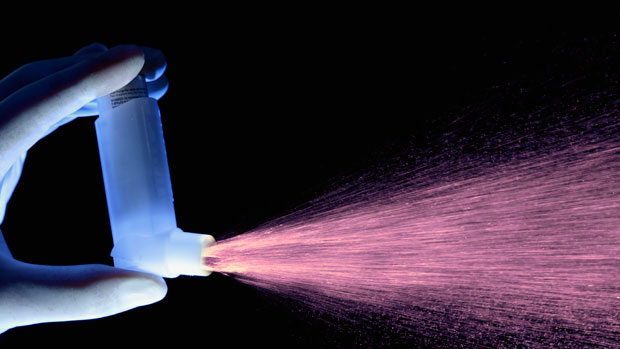Why asthma can be bad for the environment
Cambridge University study finds some inhalers release greenhouse gases

A free daily email with the biggest news stories of the day – and the best features from TheWeek.com
You are now subscribed
Your newsletter sign-up was successful
Some inhalers prescribed for people with asthma have been found to be environmentally damaging because they release greenhouse gases linked to global warming.
Researchers at the University of Cambridge say that many people with asthma could cut their carbon footprint and help protect the environment by switching to what they call “greener” medications.
How do inhalers damage the environment?
The Week
Escape your echo chamber. Get the facts behind the news, plus analysis from multiple perspectives.

Sign up for The Week's Free Newsletters
From our morning news briefing to a weekly Good News Newsletter, get the best of The Week delivered directly to your inbox.
From our morning news briefing to a weekly Good News Newsletter, get the best of The Week delivered directly to your inbox.
The study found that inhalers account for almost 4% of the greenhouse gas emissions of the NHS, with metered-dose inhalers found to have the greatest impact.
These types of inhalers contain a greenhouse gas called hydrofluoroalkane, which is used to propel the drug into the respiratory system. They are commonplace: in 2017, 70% of the 50 million inhalers prescribed were metered-dose ones.
As the Daily Mail explains, these inhalers have an estimated carbon footprint of 18oz (500g) of carbon dioxide equivalent per dose, meaning just five doses from a metered-dose inhaler have the same carbon emissions as a nine-mile trip in a car.
What is the alternative?
A free daily email with the biggest news stories of the day – and the best features from TheWeek.com
The report says that dry powder inhalers are significantly less environmentally damaging than metered-dose inhalers.
Its authors calculate that replacing just one in every ten metered-dose inhalers with dry powder inhalers would reduce carbon dioxide equivalent emissions by 58 kilotonnes, says the BBC. This is a carbon footprint equivalent to 180,000 return car journeys from London to Edinburgh, the broadcaster adds.
To put it a different way: over a year, making the switch from metered-dose to dry powder is similar to the carbon footprint reduction of cutting meat from your diet.
Is it safe to make the switch?
Not without medical advice, say experts. Asthma UK health advice head Jessica Kirby said: “It is vital that you keep using your inhalers as prescribed.
“If you are concerned about the environmental effects, talk to your doctor or asthma nurse at your next annual asthma review, to see whether there is another type of inhaler that would work for you.”
The charity says that switching to a different type of inhaler can be complicated, as it involves learning a new inhaler technique, so it should only be done with support from a GP or asthma nurse.
But isn’t the environment also bad for asthmatics?
Yes it is. Earlier this month, the BBC reported that researchers at King’s College London found that higher air pollution in the UK triggers hundreds more asthma attacks each year.
Separately, Asthma UK says that “air pollution – whether that’s traffic fumes, smoke or dust particles – is an asthma trigger”.
–––––––––––––––––––––––––––––––For a round-up of the most important stories from around the world - and a concise, refreshing and balanced take on the week’s news agenda - try The Week magazine. Get your first six issues for £6–––––––––––––––––––––––––––––––